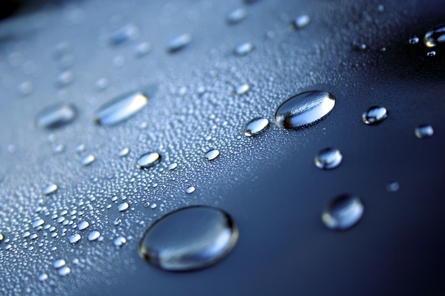This is Texas; humidity can be a problem, no less so in Austin. Air conditioning might cool your home, but that’s only half the solution when it comes to being comfortable. Both humidity and temperature both play a key role.
Air conditioning and humidity are very closely connected to each other. Not only does the performance level of your air conditioner affect the level of humidity in your home, the humidity level around you can affect your air conditioning. Either way, AC repair in Austin is sometimes necessary if you want to stay cool and comfortable in your home. To learn more about humidity and its relationship with your air conditioning, read on.
How Humidity Affects Air Conditioning
Air conditioners work by removing both heat and moisture from the air in your home. That’s how they cool you down. But that means that the more heat and moisture there is, the harder they have to work. So when you live in an area with excessive moisture, your air conditioner is going to have to work harder.
Sometimes, the humidity is too high for an air conditioner to do its job fully, and you’ll find yourself with a house that’s too humid. Signs of an overly humid home include:
- Moist air: The most obvious sign of excessive humidity in your home is that you can feel it. Your skin might feel clammy and moist if there’s too much moisture in the air.
- Odor: You might also be able to sense humidity by its odor. Humid air can sometimes have a distinct, musty smell, especially in enclosed spaces such as your home.
- Foggy windows: You might even be able to see the excess humidity in your home. When moisture becomes trapped in the air of your home, sometimes it will fog up the windows.
Humidity can negatively affect your air conditioning because high humidity cancels out the cooling effect of your air conditioner. When it’s excessively humid, it feels warmer than the thermometer will show. So to feel comfortable, you’ll have to run the air conditioner longer. This will cost you money and will wear on your air conditioner.
How Air Conditioning Can Help With Humidity
On the other hand, humidity doesn’t just affect air conditioning. Your air conditioner can help you battle high humidity as well. As was stated previously, air conditioners work by pulling heat and moisture out of the air. Pulling the heat cools the house and pulling moisture reduces the humidity. Both are needed to create a comfortable environment. In fact, controlling humidity was the original reason that air conditioners were invented, as high moisture can cause all sort of problems bigger than warm air, such as mold.
How does your air conditioner pull moisture out of the air? The evaporator coil, when the AC is running, operates below the dew point, meaning water will condense on it and leave the air. The water is then drained out through a condensate drain line.
But this takes time to happen. This is why one of the best ways for you to improve your air conditioner’s ability to dehumidify your home is to make sure your air conditioning unit isn’t too big for your home. An oversized air conditioner will run in short cycles, frequently turning on, quickly cooling the air, and then shutting off. What you want instead is an air conditioner that runs more often but at lower energy levels. That way you get all the benefits of the dehumidifying effect of your AC without the extra energy cost of an air conditioner that runs longer.
Other Ways to Battle High Humidity
Besides getting a more efficient and better-suited air conditioning unit, there are other things you can do to get rid of high humidity levels in your house. One simple tip is to make sure that if your thermostat has a “fan on” setting, you keep it off. The “fan on” setting will keep the air conditioners fan blowing even when the AC isn’t running. Often this can have the effect of blowing moisture back into the air before it has the chance to drain away.
In addition, consider using an exhaust fan during activities that produce moisture. When doing things like cooking, washing dishes, and cleaning clothes, an exhaust fan in a window can help a lot when it comes to removing all that moisture being produced.
Without a doubt, the best thing you can do to control humidity levels in your home is purchase a dehumidifier. These come in two basic types. One type installs directly onto your air conditioning system. A professional air conditioning service can help recommend and install a dehumidifier onto your existing system, or install one in conjuncture with a new air conditioner. Or, you could get a stand-alone dehumidifier. The benefit of a dehumidifier that connects to your HVAC system is that the two will work together efficiently. A stand-alone system might be cheaper but it will require you to monitor the humidity levels and adjust the dehumidifier manually.
Austin Air Conditioning Repair and Humidity Control
If your air conditioner isn’t in perfect working condition, it’s not going to be able to remove moisture from your home as effectively. That’s why if you want a home that’s both cool and not too humid, you need your air conditioner working in tip top shape. In Austin, AC repair is important, especially during these hot summer months.
At AC Express, we understand the importance of keeping humidity levels reasonable. Air conditioning Austin is a big job and we can help with that, so when AC repairs are called for, call AC Express. We can give your quality same day AC repair service that you’ll be satisfied with, guaranteed. Call today! (512) 866-5520



